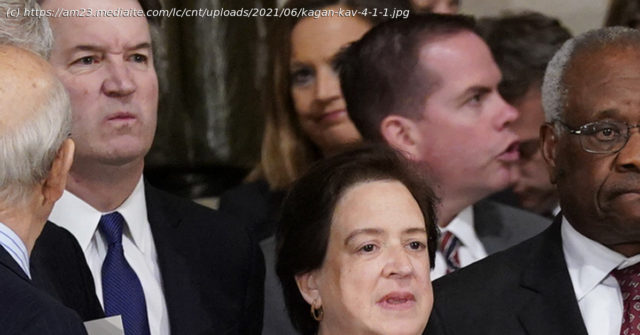In what represented the only Supreme Court decision Wednesday with a true ideological split, the Court held that a California law requiring agricultural employers to allow workers union organizers on the premises amounted to an unconstitutional taking that violated the employers’ property rights.
In what represented the only Supreme Court decision Wednesday with a true ideological split, the Court held that a California law requiring agricultural employers to allow workers union organizers on the premises amounted to an unconstitutional taking that violated the employers’ property rights. The conservative wing of the Court was in alignment, if not total agreement, in the case of Cedar Point Nursery v. Hassid, with Chief Justice John Roberts delivering the 6-3 majority opinion. Roberts was joined by Justices Clarence Thomas, Samuel Alito, Neil Gorsuch, Brett Kavanaugh, and Amy Coney Barrett. Justice Stephen Breyer wrote the dissent, joined by Justices Sonia Sotomayor and Elena Kagan. The plaintiffs were two fruit sellers in California, Cedar Point Nursery and Fowler Packing Company. They sued the state, and the Agricultural Labor Relations Board chair Victoria Hassid, over a 1975 regulation that allowed union organizers to have temporary access to an agricultural employer’s property during non-work hours, three times a day for 120 days each year, in order to talk to the workers. California defended the regulation as necessary to protect farmworkers because they tend to be inaccessible by other means, moving where work is needed, often living in temporary housing, and not always having reliable access to phones and other technology. The fruit growers argued that the law created an easement that amounts to a per se “taking,” which would require compensation under the Fifth Amendment. The Pacific Legal Foundation, which represented Cedar Point and Fowler Packing, described the union organizers as trespassers who disrupted work and used bullhorns to intimidate staff in order to recruit union members. The Court sided with the companies, and held that the California regulation amounted to a per se taking because it “appropriates for the enjoyment of third parties (here union organizers) the owners’ right to exclude,” which the Court said was a “‘fundamental element of the property right.
Start
United States
USA — Science Supreme Court Rules Against California Farmworker Unions in 6-3 Ideological Split






